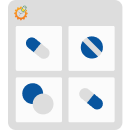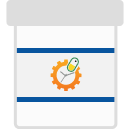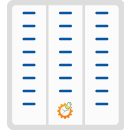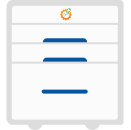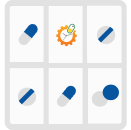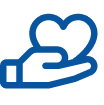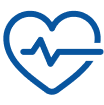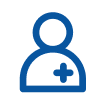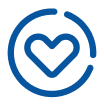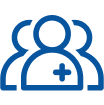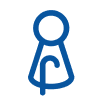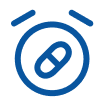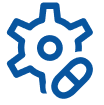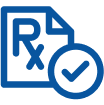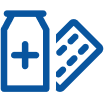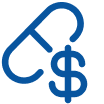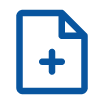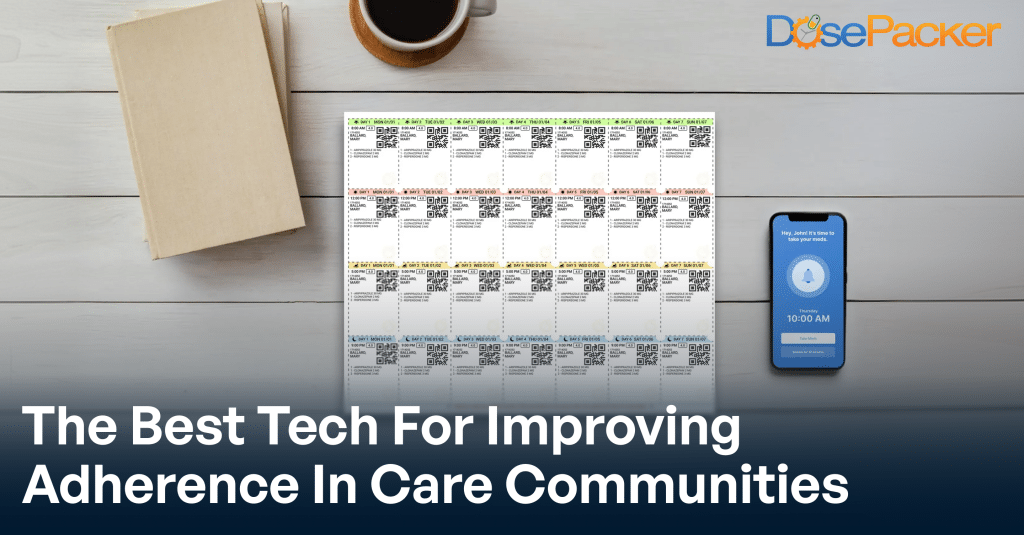Unlock the latest in medication management technology and grow your care community with us.

“Drugs don’t work in patients who don’t take them.” – Everett Koop, MD, Former United States Surgeon General
This simple quote cuts to the heart of today’s senior healthcare. As medication regimens grow more complex with age, remembering to take the right pill at the right time can feel like navigating a maze. Even worse, forgetting a single dose can mean the difference between stability and setback.
For care community owners and managers, this poses a critical challenge: How do you help residents stay consistent with their medications without compromising their independence?
In this article, we’ll explore practical, easy-to-implement strategies that support medication adherence among older adults and help them stay on track for every dose, every day.
Why Medication Adherence Reminders Matter More Than Ever
For many seniors, staying on top of their medications and prescription refills is a daily challenge shaped by countless obstacles. That’s why medication reminders have become increasingly critical for the health and safety of older adults, as well as for the caregivers and facilities supporting them. Here are key reasons why reliable reminder systems are a must-have for older adults:
Age-Related Memory Decline Is Common
It’s natural for memory to decline with age. But for many seniors, especially those with early signs of dementia or other cognitive issues, keeping track of medications becomes increasingly difficult. And it’s not unlikely for them to forget or confuse medications, dosages, and schedules.
Medication Regimens Are Getting More Complex
Most seniors don’t take just one pill. In fact, a Lown Institute study shows that more than four in ten older adults take five or more prescription medications, each with different dosing instructions. This level of polypharmacy increases the likelihood of mistakes or forgetfulness.
The Cost of Non-Adherence Is High
The consequences of missed or incorrect doses are unfortunately steep. A 2019 study enumerates adverse effects of medication non-adherence among older people into the following categories:
- Healthcare Utilization (e.g., hospitalizations, emergency department visits, physician office visits, outpatient visits, etc.)
- Quality of Life
- Mortality
- Adverse Clinical Events
- Depression
Caregiver Burnout Is Real
Caregivers and family members often step in to remind, organize, and oversee medication routines. They play a vital but exhausting role in medication management.
Without a streamlined medication reminder system, the responsibility can quickly lead to caregiver burnout, negatively impact the quality of care, increase the likelihood of errors, and compromise the caregiver’s well-being.
Six Medication Adherence Strategies That Work

There are many reasons why adherence, especially among older adults, can slip beyond forgetfulness. However, with the right strategies, care communities like yours can significantly reduce missed doses, promote better health outcomes, and alleviate the burden for caregivers and families.
Support Older Residents with Smarter Reminders
Here are six strategies that can help your residents stay on track, according to a study by Bussel et al.:
1. Build Strong Resident Partnerships
One of the most underrated yet powerful strategies in medication adherence is trust between aging adults and their healthcare providers. Residents are more likely to follow a treatment plan when they feel heard, understood, and supported by a healthcare professional they trust. This sense of connection often develops over time with compassionate communication and consistency.
In care communities, this means fostering team-based care environments where residents regularly interact with the same providers who understand their medical histories and personal concerns. When residents trust their care team, they’re also more likely to ask questions, voice concerns, and ultimately comply with medication instructions.
Tools like CareCommunityOS can further reinforce this trust by enabling care teams to provide efficient, precise, and individualized support to care communities, helping seniors feel informed and in control of their regimens.
2. Help Residents Understand Why and How to Take Their Medication
Nine out of ten adults in the United States struggle with health literacy. This is why medication instructions should be clear and easy to understand. Use plain, simple language and avoid jargon or assumptions.
Caregivers and providers should also adopt the “teach-back” method, asking residents or family members to repeat back instructions in their own words. Visual aids, handouts, and videos can also help bridge the understanding gap.
DosePacker’s multi-dose medication compliance packages are particularly effective here. Each blister pack includes clearly labeled medications grouped by time of day and dosage. This minimizes confusion and helps seniors take the right pills at the right time.
Using intuitive tools that simplify communication, care communities can help residents understand how and why they should take their medication, which is key to long-term adherence.
3. Simplify and Streamline Medication Regimens
Medication regimens can be overwhelming, especially for residents exposed to polypharmacy. Adherence rates drop with every additional daily dose required. To maintain medication adherence, consider simplifying regimens by moving to once-daily dosing when possible or aligning medication times with daily routines.
Care communities should also strive to reduce the number of prescribers, pharmacies, and refill dates for each resident. DosePacker supports this approach through automated medication sorting and synchronized prescription refill schedules, which enables facilities to deliver a whole month of pre-organized doses in one go.
By consolidating and synchronizing medication routines and reducing the mental load, seniors are less likely to skip doses and more likely to stick with their treatment plans.
4. Address Cost Concerns Proactively
Cost is a silent barrier in many healthcare settings. Seniors may find copays or out-of-pocket expenses too high and, instead of bringing up their concerns, may decide to skip medications altogether. In a care community, it’s critical to create a safe space for conversations about affordability.
You can train your care teams to initiate cost-related discussions compassionately and stay informed about discount drug programs, generics, and pharmacy collaborations that reduce financial burden.
DosePacker’s pharmacy partnerships, for example, help flag cost-saving opportunities, simplify refill coordination, and assist facilities or families in identifying cost-effective alternatives without compromising the quality of care.
5. Empower Residents Through Digital Tools
Mobile applications can play a huge role in building medication self-efficacy. Solutions that offer medication reminders, track missed doses, and provide refill alerts empower residents to be more active participants in their health.
One standout solution is the MyDoses app, which serves as a personal medication assistant. It delivers timely dose reminders, allowing users to log when they’ve taken or missed a dose and maintain a visual history of adherence. The app can also export this data, enabling healthcare providers to review adherence patterns and make more informed decisions during visits.
Empowering residents doesn’t just improve adherence; it also fosters a greater sense of autonomy and dignity. By combining support from healthcare teams with the convenience of smart digital tools, older adults are better equipped to establish and maintain healthy habits that last.
6. Reassess and Reevaluate Regularly
Even the best plans need fine-tuning. Medication routines that worked last month may not be suitable for a resident’s current condition, cognition, or lifestyle. This is why continual reassessment is essential.
Use every visit, check-in, or care conference to review adherence. Ask direct questions, listen for insights, review prescription refill histories, and look for red flags such as side effects, confusion, or resistance to treatment.
It’s also helpful to leverage any analytics tools your community management software may have. CareCommunityOS, for example, has an analytics module that allows your team to track adherence patterns across residents, identify those at risk of non-compliance, and proactively intervene.
DosePacker: Smart Solutions to Help Seniors Stay on Schedule
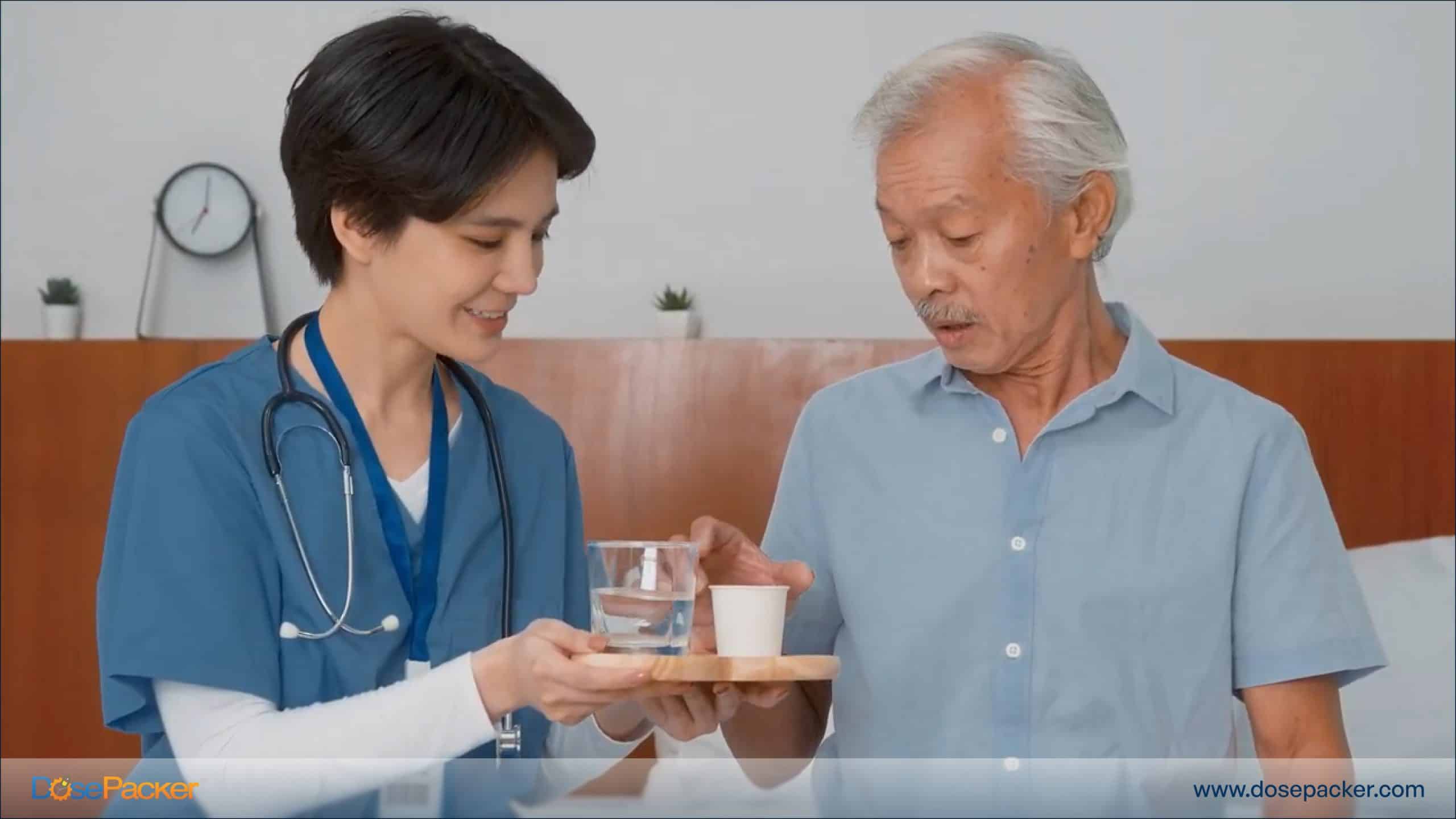
In the end, the truth is as simple as it is urgent: Medications only work when taken.
Every dose matters. With reliable reminder systems, a little help from intelligent technology, and a lot of empathy, your residents can stay on track, reduce health risks, and live better lives.
Whether it’s multi-dose compliance packaging, an easy-to-use app, or the support of a trusted caregiver, every small effort adds up to better health outcomes.
Explore how tools like DoseMinder and MyDoses can transform your medication management strategy and bring peace of mind to your care community.
